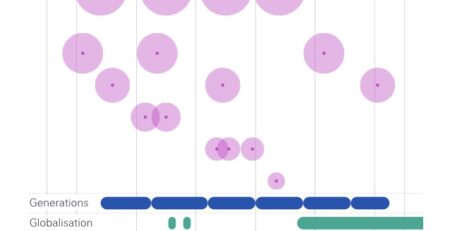Latent Cumulative Disadvantage: US Immigrants’ Reversed Economic Assimilation in Later Life
By Leafia Z Ye
One of the most salient findings in research on immigration has been that immigrants experience substantial economic mobility as they accumulate more years in the host-society labor force and eventually approach earnings parity with their native-born counterparts. However, we do not know whether this progress is sustained in retirement. In this paper, I develop a framework of Latent Cumulative (Dis)advantage and hypothesize that even as immigrants are approaching parity with the native-born in terms of current earnings, they accumulate disadvantages in lifetime earnings, job benefits, and retirement planning that eventually lead them to have growing disadvantages in income in later life. Drawing on decades of longitudinal data from the Health and Retirement Study, I find that while foreign- and native-born men in the United States both experience a decline in income after age 50, the decline is much more substantial among foreign-born men. As a result, immigrant men’s economic assimilation is reversed in later life. I find evidence that this phenomenon is driven mainly by immigrants’ lower lifetime earnings and cumulative exposure to worse job benefits. Given that the foreign-born elderly population in the United States is projected to quadruple by 2050, findings from this paper have important implications for long-term policy planning.
Source: @academic











